Publications
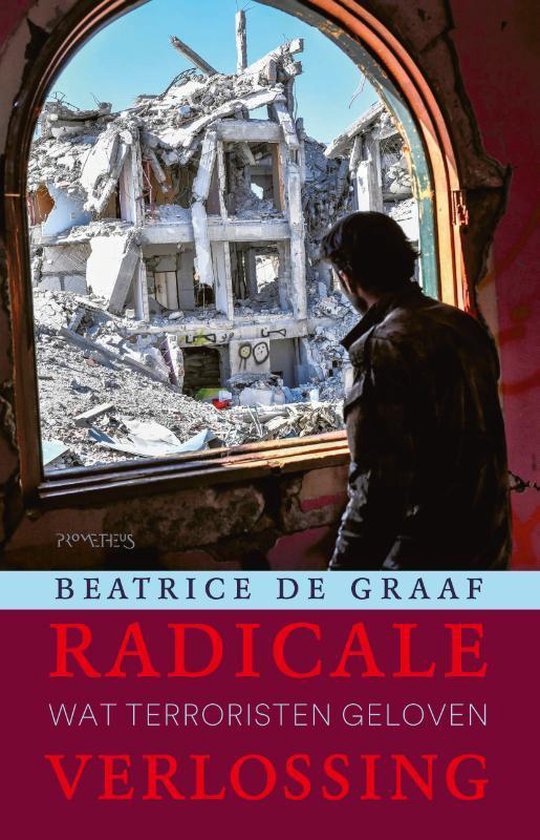
Beatrice de Graaf: ‘Radicale verlossing. Wat terroristen geloven’
On the 28th of April, prof. dr. Beatrice de Graaf presented her new book ‘Radicale verlossing, wat terroristen geloven’. Together with publisher Mai Spijkers from Prometheus, National Coordinator for Counterterrorism and Security Pieter-Jaap Aalbersberg, former director PI Vught Yola Wanders, lawyer André Seebregts and a student panel she has launched this book at bookstore Broese…
Read more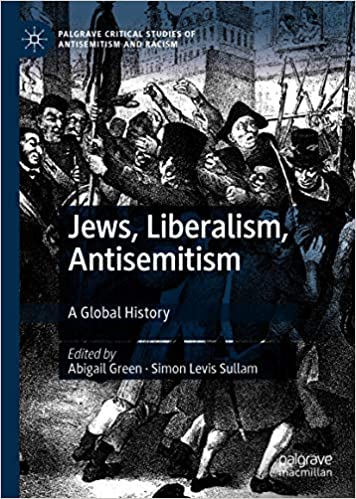
Chapter in ‘Jews, Liberalism, Antisemitism. A Global History’ by Ozan Ozavci
This month, Palgrave Macmillan published the book Jews, Liberalism, Antisemitism. A Global History external link. Dr Ozan Ozavci external link(History and Art History external link) contributed a chapter about Russian writer Vladimir Jabotinsky. Jews, liberalism, and antisemitism In the past, historians have mostly understood the relationship between Jews, liberalism and antisemitism as a European story, defined by the collapse…
Read more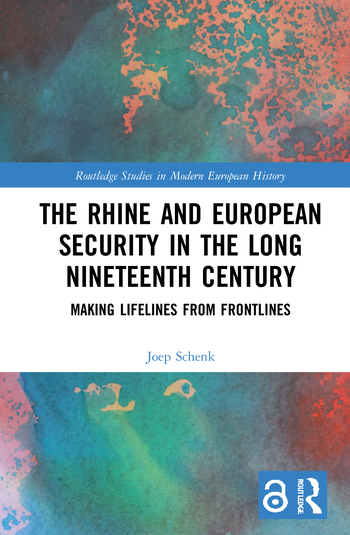
Joep Schenk: ‘The Rhine and European Security in the Long Nineteenth Century. Making Lifelines from Frontlines’
While many will place the origins of the United Europe as a peace and prosperity project in the 1950s, Joep Schenk’s new book shows that the foundations of this project were laid much earlier, on February 2, 1815. On that day, 206 years ago this week, delegates from the four superpowers France, Prussia, the United…
Read more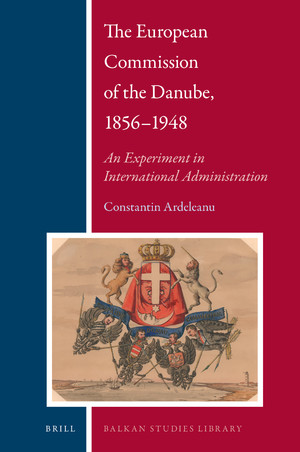
Constantin Ardeleanu: ‘The European Commission of the Danube, 1856-1948’
In The European Commission of the Danube, 1856-1948 Constantin Ardeleanu offers a history of the world’s second international organisation, an innovative techno-political institution established by Europe’s Concert of Powers to remove insecurity from the Lower Danube. Delegates of rival empires worked together to ‘correct’ a vital European transportation infrastructure, and to complete difficult hydraulic works…
Read more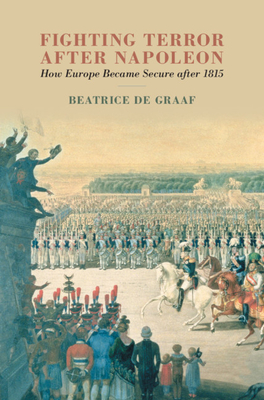
Beatrice de Graaf: ‘Fighting Terror After Napoleon: How Europe Became Secure After 1815’
This month, Cambridge University Press published Fighting Terror after Napoleon: How Europe Became Secure after 1815. This book is an English translation of the book Tegen de terreur: Hoe Europa veilig werd na Napoleon by Beatrice de Graaf that was published in 2018. The aftermath After twenty-six years of revolutions and fighting, the victorious powers craved…
Read more
New volume on Shaping the International Relations of the Netherlands, 1815-2000
Joep Schenk, Erik de Lange, Beatrice de Graaf and Wouter Klem recently contributed to a new volume on Shaping the International Relations of the Netherlands. The volume is edited by Ruud van Dijk, Samuël Kruizinga, Vincent Kuitenbrouwer and Rimko van der Maar. The book seeks to launch a new research agenda for the historiography of Dutch…
Read more
Constantin Ardeleanu: ‘A Short Biography of John Stokes’
IO BIO: Biographical Dictionary of Secretaries Generals of International Organizations includes a biography of John Stokes, the first British commissioner in the European Commission of the Danube (1856-1871) and de facto leader of the institution. The biography, authored by Constantin Ardeleanu, is illustrative for the political relevance of navigation experts during the second half of…
Read more
Constantin Ardeleanu: ‘Fishing in the Lower Danube and Its Floodplain from the Earliest Times to the Twentieth Century’
New publication by Constantin Ardeleanu, ‘Fishing in the Lower Danube and Its Floodplain from the Earliest Times to the Twentieth Century’, in Tonnes Bekker-Nielsen and Ruthy Gertwagen (eds.), The Inland Seas. Towards an Ecohistory of the Mediterranean and the Black Sea (Geographica Historica 35), Franz Steiner Verlag, Stuttgart, 2016. This paper is an overview of…
Read more
Constantin Ardeleanu: ‘Foreign migrant communities in the Danubian ports of Brăila and Galaţi (1829-1914)’
New publication by Constantin Ardeleanu, ‘Foreign migrant communities in the Danubian ports of Brăila and Galaţi (1829-1914)’ in the vol. Olga Katsiardi-Hering and Maria A. Stassinopoulou (eds.), Across the Danube. Southeastern Europeans and Their Travelling Identities (17th–19th C.), Brill, 2016. The article by Constantin Ardeleanu discusses the context in which the Danubian outlets of Brăila…
Read more
Beatrice de Graaf and George Dimitriu publish summer reading list on strategic narratives and war
Scholars are increasingly focusing on the non-physical aspects of war in order to explain ‘why big nations lose small wars’. One of the central arguments in the debate is that it is increasingly important to explain what success will look like to the local population, opponents, the international audience and the public at home, and to convince them of the official storyline.
Read more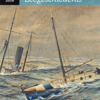
Article in ‘Tijdschrift voor Zeegeschiedenis’ by Joep Schenk
Joep Schenk recently published a new article in the Dutch journal ‘Tijdschrift voor Zeegeschiedenis‘ (Journal for Naval History), titled ‘War-time opportunities. Rhine sailors versus the Coal-trading union, 1914-1918’. Abstract: During the First World War the British economic blockade squeezed off transit via the Netherlands to Germany. Consequently, unemployed Rhine skippers flooded the Dutch inland shipping market and freight…
Read more
New volume on Terrorism Trials, edited by Beatrice de Graaf and Alex P. Schmid
In their new book Terrorists on Trial: A Performative Perspective, editors Prof. Dr Beatrice de Graaf and Prof. Dr Alex P. Schmid present a performative perspective on terrorism trials, drawing attention to the mechanisms and effects of these trials in and outside the courtroom. Trial and theatre This volume views terrorism trials as a form of theatre, where…
Read more
Interview with Joep Schenk on the Rhine commission in ‘Nieuwsblad Transport’
Joep Schenk was interviewed by Nieuwsblad Transport on the Rhine Commission (Central Commission for Navigation of the Rhine, CCNR) and its contribution to the creation of a European security culture in the nineteenth century. The article was published in issue 19, volume 29 (2016), pp. 16-17.
Read more
Article by Beatrice de Graaf on reintegration of jihadist ex-convicts
A special issue on radicalisation and terrorism of the journal Justitiële verkenningen (Judicial explorations, no.2, 2016) explores the attractiveness of IS to (islamic) European yougsters and the apocalyptic nature of IS ideology. In their chaper ‘After the release: Observations and dilemmas in dealing with (former) detainees with a jihadist background’, Beatrice de Graaf and Daan Weggemans explore how to deal…
Read more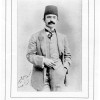
Ozan Ozavci: Bir Jön Türk’ün Günlüğü ve 1915
Ozan Ozavci recently wrote a paper in Turkish titled “Bir Jön Türk’ün Günlüğü ve 1915”. It is about The 1915 Armenian Genocide through the lens of a Young Turks’ personal notes and correspondence. H. Ozan Ozavci, ‘Bir Jön Türk’ün Günlüğü ve 1915,’ Toplumsal Tarih, 264 (Dec., 2015). The publication is open access available through Ozavci’s page at Academia.net.
Read more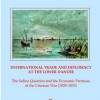
Constantin Ardeleanu: International Trade and Diplomacy at the Lower Danube,1829–1853
Constantin Ardeleanu, team member of the ERC Secure project recently published a monograph titled “International Trade and Diplomacy at the Lower Danube: the Sulina Question and the Economic Premises of the Crimean War, 1829–1853” (Brăila : Istros, 2014.). The publication is open access available through Ardeleanu’s page ar Academia.net.
Read more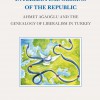
Ozan Ozavci: Intellectual Origins of the Republic. Ahmet Ağaoğlu and the Genealogy of Liberalism in Turkey
Few studies tracing the history of liberalism have taken into account that its reception in non-Western or westernising countries, in the form of the denial or acceptance of its core values and institutions, is an important aspect of the liberal tradition. In Intellectual Origins of the Republic: Ahmet Ağaoğlu and the Genealogy of Liberalism in…
Read more
Joep Schenk, Rotterdam’s port barons, Ruhr industrialists and the state (Comparative Business History)
Schenk, J. (2014) Rotterdam’s port barons, Ruhr industrialists and the state. Transnational entrepreneurship along the Rhine 1870-1914. 18th Annual Congress of the European Business History Association (EBHA): Comparative Business History. Contrasting Regions, Sectors, and Centuries, 21-23 August, Utrecht, Netherlands.
Read more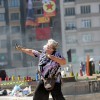
Ozan Ozavci, Opposition to Authoritarianism (Turkish Studies)
This article discusses the establishment, ideology and actions of the Liberal International and its Turkish group the Society for the Dissemination of Free Ideas (SDFI). The SDFI was the first liberal civil society in Turkey. To this date, little attention has been paid to its actions and ideology. Taking the history of the SDFI as…
Read more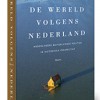
Beatrice de Graaf, Nederland en de collectieve veiligheid
Beatrice de Graaf, ‘Nederland en de collectieve veiligheid’, in: Jacco Pekelder, Remco Raben en Mathieu Segers (eds.), De wereld volgens Nederland. Nederlandse buitenlandse politiek in historisch perspectief (Amsterdam: Boom 2015). Website Boom Publishers (in Dutch)
Read more
Beatrice de Graaf, Second-tier Diplomacy (Journal of Modern European History)
This article supplements Anglo- or Prussian dominated readings of the Vienna Conference by focusing more on its beginnings, on alternative scenarios of a Dutch-German union and on the process of diplomatic bargaining by secondary agents. Based on new archival material, German-Dutch cooperation in Vienna is traced and placed in a wider context. Vienna did not…
Read more
Joep Schenk, Rotterdam’s port barons (EBHA)
Joep Schenk, ‘Rotterdam’s port barons, Ruhr industrialists and the state. Transnational entrepreneurship along the Rhine 1870-1914’. 18th Annual Congress of the European Business History Association (EBHA): Comparative Business History. Contrasting Regions, Sectors, and Centuries, 21-23 August, Utrecht, Netherlands.
Read more
Wouter Klem, Van kranten venten tot massademonstratie (Die Haghe)
Wouter Klem, ‘Van kranten venten tot massademonstratie: de stemrechtstrijd in Den Haag van 1880 tot 1887’, Jaarboek van Geschiedkundige Vereniging Die Haghe (2014) pp. 96-123 Klem, Die Haghe (first page)
Read more


